Lo Stato di Clutch nello Sport: massimizzare le prestazioni in momenti critici. Lo Sport è un’arena in cui gli atleti si confrontano costantemente con sfide, pressioni e momenti cruciali. In questi momenti, la capacità di mantenere la concentrazione e ottenere le massime prestazioni diventa fondamentale....
SCUOLA DI COACHING ONLINE Approfondisci
Coaching News
✔ Coaching nelle Organizzazioni: come, quando e perchè inserirlo
✔ Come Migliorare la Propria Leadership
✔ Come Gestire il Cambiamento Organizzativo in Azienda
✔ Che cos'è la Leadership Coach-Oriented: quando è utile
✔ Che cos'è la Leadership Etica perchè è Importante
✔ Che cos'è la Leadership Situazionale: migliorarla con il Coaching
- Azienda
Eventi Formativi
- Il Team
- Domande Frequenti
Domande frequenti sul CoachingCos'è il Coaching?
E’ una metodologia processuale-relazionale, una partnership (tra un Coach ed il suo Cliente) centrata sullo sviluppo e l’allenamento delle potenzialità personali... ► Vai alle F.A.Q.
A che cosa è utile il Coaching?La cosa più importante da specificare è che il Coaching non "lavora sul problema" o sulle patologie psicologiche delle persone... ► Vai alle F.A.Q.
A chi è utile il Coaching?Fare Coaching, in linea di principio, potrebbe essere utile a tutti. E’ bene chiarire che non ci sono controindicazioni... ► Vai alle F.A.Q.
Che tipo di Coaching viene insegnato?Amiamo definire il nostro Coaching "Coaching con la "C" maiuscola". Non siamo una Scuola di PNL, non insegnamo Psicologia o Counseling, non ci interessano la persuasione... ► Vai alle F.A.Q.
Cosa posso fare dopo aver frequentato la Scuola di Coaching?Il percorso mira ad insegnare come si conduce la relazione e il dialogo di Coaching. La Scuola si propone di formare Coach Professionisti... ► Vai alle F.A.Q.
- Area Riservata
- ► Cerca un Coach
Leggi, Studia e Approfondisci il Coaching Professionale
Oltre 700 Articoli sul Coaching e la Crescita Personale

Categoria Coaching
Tutti gli Articoli sul Coaching

Categoria Life Coaching
Tutti gli Articoli sul Life Coaching

Categoria Business Coaching
Tutti gli Articoli sul Business Coaching

Categoria Sport Coaching
Tutti gli Articoli sullo Sport Coaching

Sviluppo del Potenziale
Tutti gli Articoli sulle Virtù e le Potenzialità Umane.

Categoria Interviste
Articoli ed Interviste a Trainer ed Autori.

Biografie
Le Biografie di Autori vicino al mondo del Coaching.
Puoi leggerci anche su PaperBlog

Blog
Più di 500 Articoli sul Coaching e la Crescita Personale.

Categoria Sport Coaching
Tutti gli Articoli sullo Sport Coaching
Dalla superstizione alla scienza della performance: cosa sono e come gestire routine e rituali nello Sport Hai mai notato come molti atleti, prima di una gara importante o prima di eseguire un gesto motorio fondamentale, compiono una serie di gesti ripetitivi e quasi rituali? Hai mai osservato i gesti...

Blog
Più di 500 Articoli sul Coaching e la Crescita Personale.

Categoria Life Coaching
Tutti gli Articoli sul Life Coaching
Come affrontare la paura del fallimento: strategie efficaci nella vita Personale, Professionale e nello Sport. La paura del fallimento è un’emozione potente che può influenzare molteplici aspetti della vita. In questo articolo, esploreremo come affrontare la paura del fallimento nel contesto...

Blog
Più di 500 Articoli sul Coaching e la Crescita Personale.

Categoria Sport Coaching
Tutti gli Articoli sullo Sport Coaching
Mental Coaching negli Sport di Squadra per massimizzare il potenziale collettivo con strategie vincenti e benefici tangibili. Nel mondo degli sport di squadra, la forza mentale è un elemento distintivo che può fare la differenza tra una squadra mediocre e una squadra di successo. Il Mental Coaching,...

Blog
Più di 500 Articoli sul Coaching e la Crescita Personale.

Categoria Sport Coaching
Tutti gli Articoli sullo Sport Coaching
Mental Coaching nei Tuffi: strategie vincenti di allenamento mentale per superare le sfide. Il mondo dei tuffi è affascinante e spettacolare, ma affrontare le sfide mentali può essere altrettanto cruciale quanto la perfezione tecnica dei movimenti. Il Mental Coaching nei tuffi si sta rivelando sempre...

Blog
Più di 500 Articoli sul Coaching e la Crescita Personale.

Categoria Sport Coaching
Tutti gli Articoli sullo Sport Coaching
Mental Coaching nel Canottaggio: l’arte di sviluppare la forza mentale per il successo. Il canottaggio, uno sport che sfida sia la forza fisica che la forza mentale, richiede una preparazione approfondita per eccellere in gara. Il Mental Coaching nel canottaggio svolge un ruolo cruciale nell’armare...

Blog
Più di 500 Articoli sul Coaching e la Crescita Personale.

Categoria Coaching
Tutti gli Articoli sul Coaching

Categoria Sport Coaching
Tutti gli Articoli sullo Sport Coaching
La Forza Mentale nel Canottaggio come chiave del successo: segreti, consigli pratici e ispirazione. Il canottaggio, uno sport che va oltre la fisicità, richiede una forza mentale straordinaria per dominare le acque e superare le sfide. In questo articolo di approfondimento, esploreremo il ruolo cruciale...

Blog
Più di 500 Articoli sul Coaching e la Crescita Personale.

Categoria Sport Coaching
Tutti gli Articoli sullo Sport Coaching
Motivazione nello Sport: fonti d’ispirazione, sfide e consigli per un impegno duraturo. Lo sport è molto più di una semplice attività fisica; è un impegno costante, una sfida con sé stessi e con gli altri, che richiede una motivazione ferrea per superare gli ostacoli e raggiungere obiettivi...

Blog
Più di 500 Articoli sul Coaching e la Crescita Personale.

Categoria Coaching
Tutti gli Articoli sul Coaching
Come aumentare la sicurezza in sé stessi: imparare a lavorare sulla sicurezza personale vuol dire affrontare le sfide con più serenità, realizzare i propri obiettivi e, in generale, vivere meglio. Aumentare la sicurezza in sé stessi è un processo individuale che richiede tempo, impegno e consapevolezza....

Blog
Più di 500 Articoli sul Coaching e la Crescita Personale.

Categoria Coaching
Tutti gli Articoli sul Coaching

Categoria Life Coaching
Tutti gli Articoli sul Life Coaching
Accettare se stessi è un viaggio significativo verso la felicità e il benessere personale. Troppo spesso, ci troviamo a confrontarci con gli standard irrealistici imposti dalla società, creando un conflitto interiore che mina la nostra autostima. In questo articolo, chiedendoci come accettare se stessi,...

Blog
Più di 500 Articoli sul Coaching e la Crescita Personale.

Categoria Coaching
Tutti gli Articoli sul Coaching
Come costruire una mentalità vincente e raggiungere obiettivi sfidanti. Hai mai desiderato di avere una mentalità vincente che ti permetta di affrontare sfide con fiducia, superare ostacoli e raggiungere i tuoi obiettivi? Capire come costruire una mentalità vincente è fondamentale per il successo...

Blog
Più di 500 Articoli sul Coaching e la Crescita Personale.

Categoria Coaching
Tutti gli Articoli sul Coaching

Categoria Sport Coaching
Tutti gli Articoli sullo Sport Coaching
Come si fa Mental Coaching: scopri i segreti per migliorare le Performance Sportive. Il Mental Coaching è un elemento cruciale nel mondo dello sport, un percorso che va oltre l’allenamento fisico per concentrarsi sulla motivazione intrinseca, sulle emozioni e sulla preparazione psicologica. In questo...

Blog
Più di 500 Articoli sul Coaching e la Crescita Personale.

Categoria Coaching
Tutti gli Articoli sul Coaching

Categoria Sport Coaching
Tutti gli Articoli sullo Sport Coaching
Mental Coaching nello Sport: quali sono gli strumenti e i benefici del Mental Coaching per gli atleti. Da qualche tempo si sente parlare sempre più spesso di Mental Coaching nello sport. La ragione principale è l’evidenza per cui lo sport non è solo una questione di abilità fisica, ma coinvolge...

Blog
Più di 500 Articoli sul Coaching e la Crescita Personale.

Categoria Coaching
Tutti gli Articoli sul Coaching
Lo spirito di squadra è un pilastro del successo in ogni contesto: come migliorarlo e potenziarlo. Lo spirito di squadra è il fondamento su cui si costruisce il successo di ogni team. In ogni ambito, che sia sportivo, lavorativo o sociale, la forza di un gruppo dipende dalla coesione, dalla collaborazione...

Blog
Più di 500 Articoli sul Coaching e la Crescita Personale.

Categoria Coaching
Tutti gli Articoli sul Coaching
Il Potenziale personale è un argomento ricorrente nel Coaching: come possiamo valorizzarlo e perché è importante conoscerlo e dargli valore. Il potenziale personale, lo dice la parola stessa, è ciò che un individuo, in potenza, può fare. Rappresenta la ricchezza intrinseca di ciascuno, un insieme...



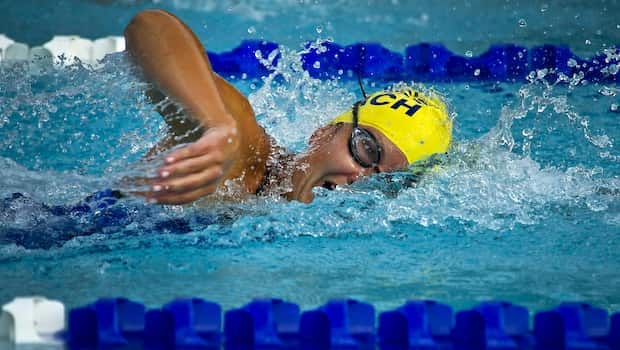

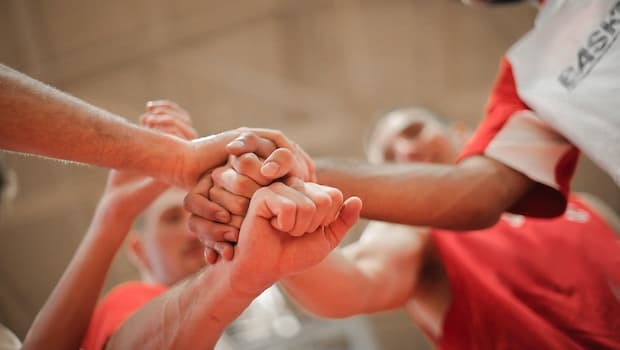
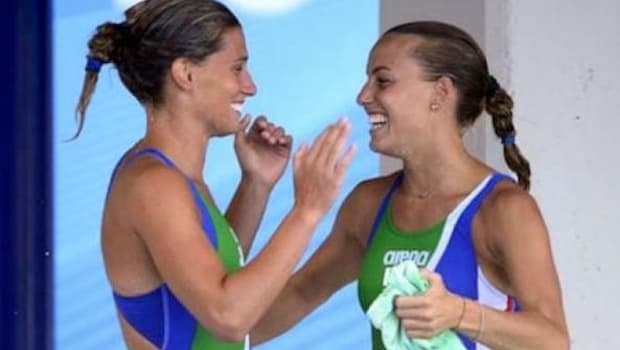
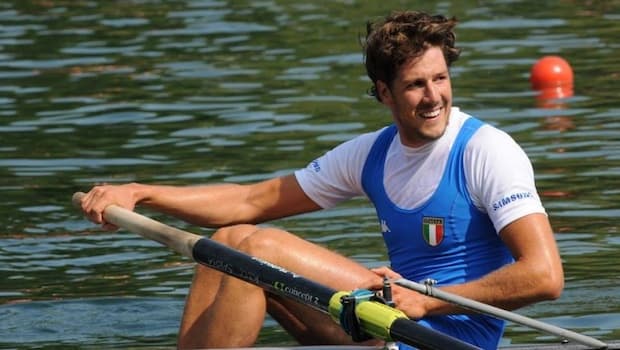

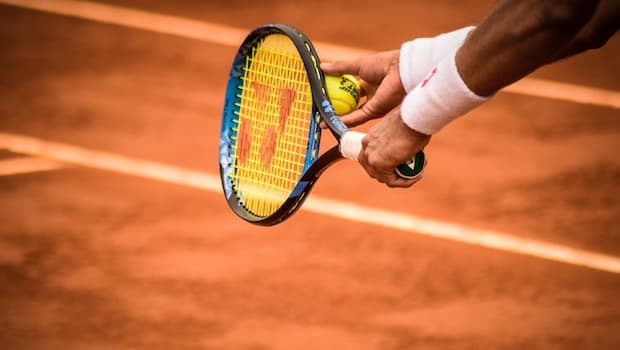

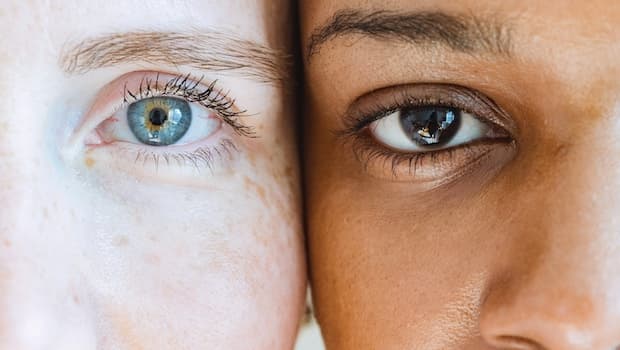
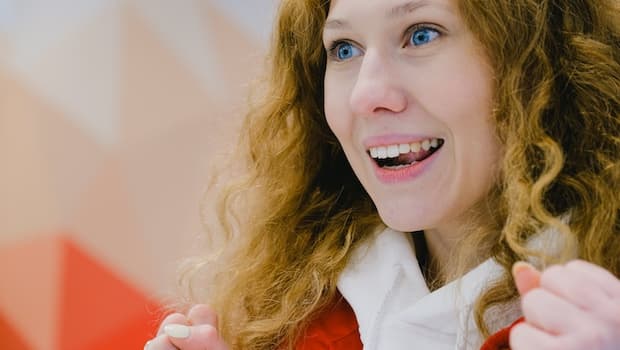
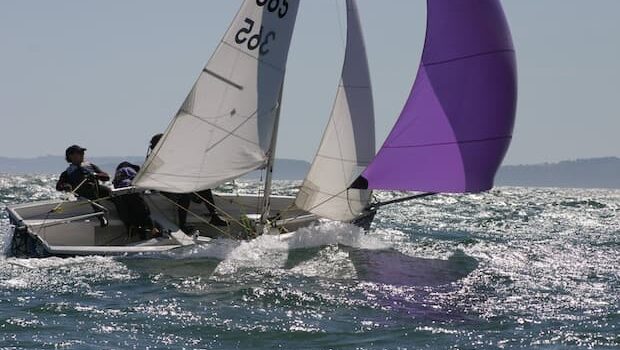



 _______________________________
_______________________________









